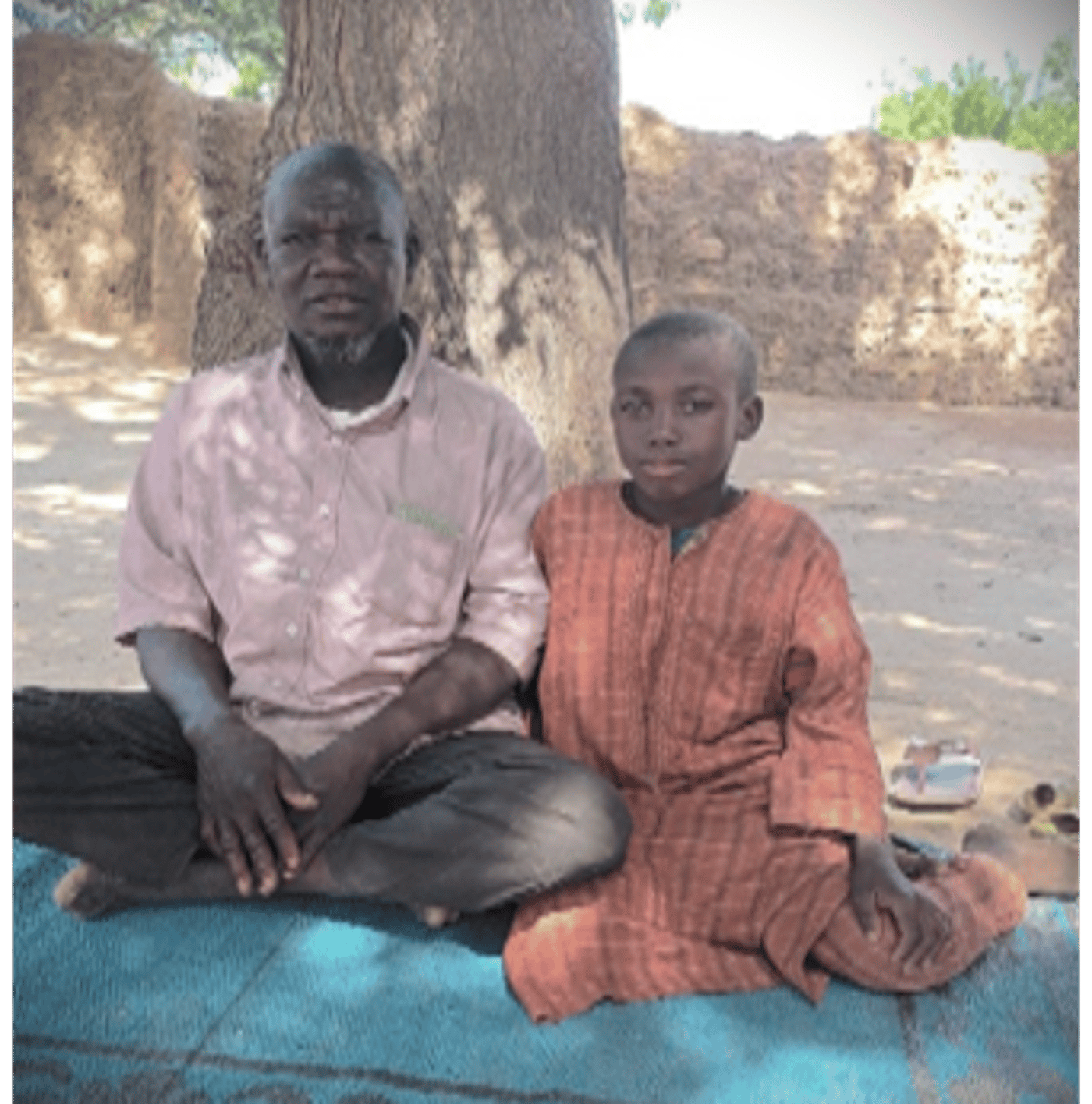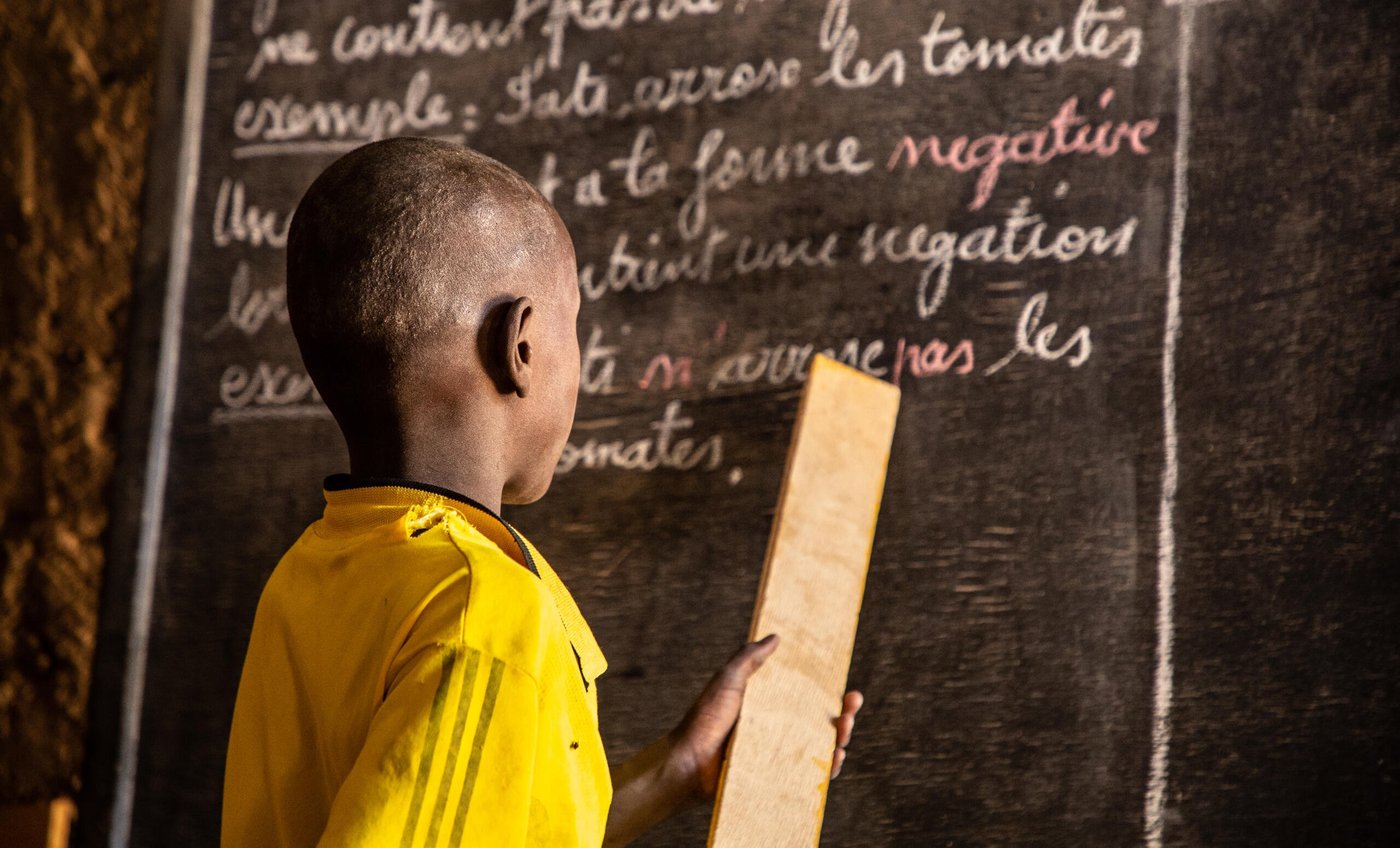Advancing to secondary school
Both children are doing well at school, and transitioning to secondary school should just be a formality. However, to advance to the next academic level and take their primary school exit exam, they must provide the school with a birth certificate.
Unfortunately, neither Djafar nor Souleymane possessed that crucial document since they were not registered at birth within the mandatory deadline.
"My son is finishing primary school,” says Mamoudou, Djafar’s father. “The teacher asked me for his birth certificate to complete his application for secondary school, but I didn’t have it.” Mamoudou was displaced from his home and has lived in Madarounfa for the past five years.

A long and costly legal process
Access to civil documentation remains a challenge for people in Niger. People are often unaware of the importance of registering births at civil registries and have little information about the procedures to follow.
When people flee conflict, they do not always have time to gather their documentation. Obtaining these documents becomes very difficult once they settle in a new area. The insecurity in Niger also means that civil registries and their staff are often targeted during attacks.
Another challenge is that local administrative and legal authorities are not always familiar with the relevant laws or regulations. They are sometimes not trained or equipped to issue such documents in crisis situations.
In Niger, parents are allowed to register the birth of their child free of charge within 60 days. After that, the procedure becomes long and costly. It can cost up to 10,000 West African CFA francs (equivalent to 16 US dollars), a sum that is unaffordable for most people in vulnerable situations.
"When Souleymane was born, we weren't informed about the need to obtain a birth certificate,” says Amadou, Souleymane's father. “We realised too late. In this case, obtaining this document has become a real headache.”

The importance of a birth certificate
The two parents met with teams from the Norwegian Refugee Council (NRC) at sessions organised to raise awareness of the importance of legal and civil documentation.
"We were given the information we needed,” recalls Amadou. “It was enlightening! But we had very little time left to start the registration process. And I didn't have enough money to cover the cost.”
"There were NRC teams working in the school my son attended,” says Mamoudou. “They identified children who lacked legal documents and funded their birth registration with the relevant authorities.”
"I was afraid I wouldn't be able to sit my end-of-year exams," says Djafar. "Thanks to NRC, I was able to get a birth certificate. So, I'll be able to submit my application to go on to secondary school!" And maybe one day, he'll be able to fulfil his dream of becoming a doctor.
NRC’s protection response project
To date, 2,975 birth certificates out of a planned 6,000 have been issued to families as part of NRC’s protection response project in Niger. Among other objectives, the project aims to provide legal protection for vulnerable populations (displaced people, refugees and host communities).
Through legal assistance, the project hopes to restore and strengthen access to fundamental rights and basic services in the Tillabéry and Maradi regions. The project was implemented by NRC with the support of the Regional Directorate of Civil Status and the judicial authorities, and in coordination with UNHCR, CIAUD Canada and the Human Rights Directorate. It is funded by the European Union.
Sign up to our newsletter to read more stories from around the world.


